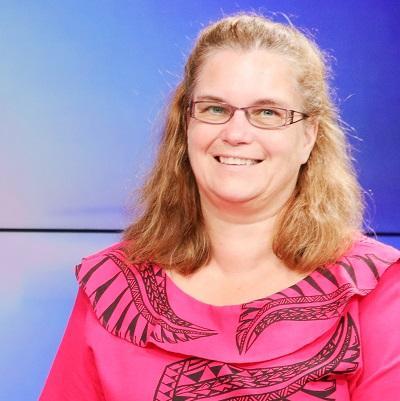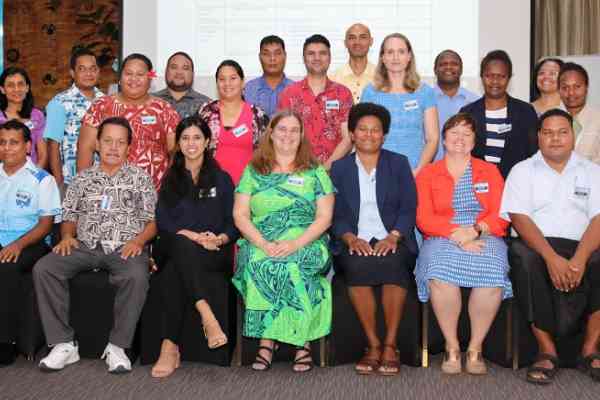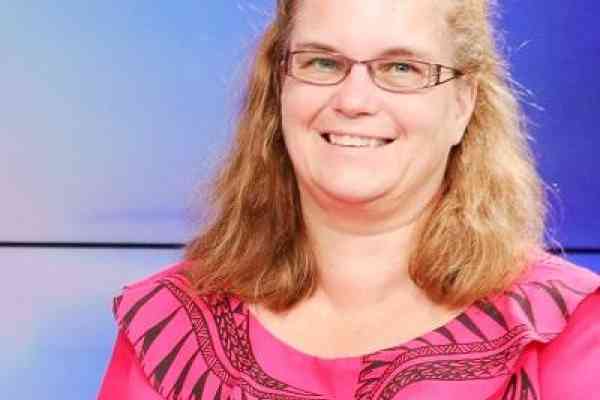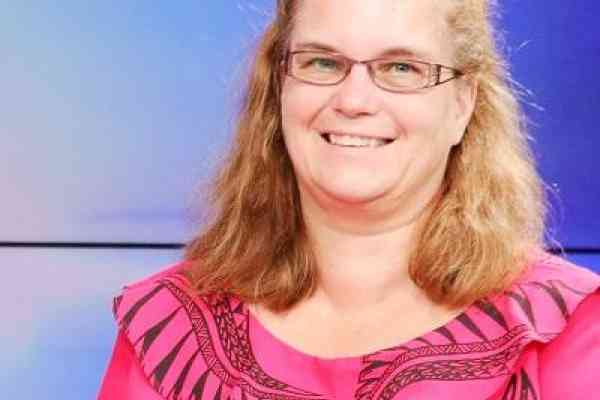Good morning and welcome everyone to our workshop to begin creating the Pacific Assessment for Lower Secondary, or PALS.
I am Michelle Belisle, director of the Educational Quality and Assessment Programme (EQAP) of the Pacific Community and while I am speaking to you remotely, know that I would like nothing more than to be there in person to work alongside you on this exciting endeavour. This week you will be working together as national experts and regional specialists to lay out the framework, blueprint, and benchmarks for the PALS pilot assessment. Following that, you will be collaboratively developing items that will be used in the PALS pilots both this year and in 2024.
We have before us a rare opportunity to design and implement an assessment that, like PILNA is truly of and for Pacific education systems. Framed at the regional level by the Pacific Regional Education Framework (PacREF) and the 2050 Strategy for the Blue Pacific Continent and globally by the Sustainable Development Goals, particularly SDG4, PALS can take any form that we want it to take to provide teachers, schools, decision-makers, elected officials, and development partners with valuable information that will lead to better outcomes for students. While this is an exciting time for the Pacific in terms of our capacity to measure, understand and positively impact on student learning at the lower secondary level, there may still be some unanswered questions about the need for and the significance of a lower secondary regional assessment.
We know that countries have their own national assessments and mechanisms for gauging student learning outcomes in each national context, but there is still a need to benchmark against international standards to get a sense of how students in the Pacific measure against their peers in a more global sense. Since 2012, PILNA has made this possible at the primary level but past primary, there has been no way of measuring where Pacific Island students stand collectively.
A regional assessment programme provides an important tool for collecting comparative and benchmarking data. Like PILNA, we envision that the Pacific Assessment for Lower Secondary will be a measurement of regional standards based on a common scale. While the reading and numeracy scales are already in place and can be extended to PALS, the work started this week will ultimately result in the development of common scales in new domains such as science and critical thinking.
By enacting regional measures that provide data at national and regional levels, we enhance understanding of educational results by providing insights into variations in achievement between, and within, countries. While it is true that outcomes of a regional assessment highlight ongoing challenges to ensuring that all Pacific students have access to high-quality education, they also challenge policymakers to look at ways in which student achievement can be improved through education system responses. In line with two of the four PacREF policy themes: Quality and Relevance and Student Outcomes and Wellbeing, that effort hinges on the development of an assessment that is contextually appropriate for the region, is inclusive of all learners and is relevant to the students, teachers, schools, and systems who participate.
Like PILNA at the primary level, PALS is much more than an assessment of science, literacy and numeracy. Commitment 5, made by Pacific Island Leaders under the 2050 strategy states “to guarantee the future of our children, we will urgently advocate as a collective to reduce and prevent the causes and impacts of climate change and sea level rise; we will call for stronger global commitment to combat climate change; we will continue to pursue innovative measures to address climate change impacts and disaster risk; and with the support of our partners, we commit to ensuring net zero carbon emissions by 2050.”
As students, the future leaders and citizens of our region, progress through lower secondary school and beyond, it will fall to them to live up to and actualize that commitment. It is important, then, to understand the factors that support and the factors that inhibit their learning and it is also important to get a sense of students’ attitudes towards and perceptions of climate issues. Equally, it is important to understand how students think about issues and how they apply critical thinking when faced with new situations. Armed with this type of information, we can support students and teachers in developing the skills and knowledge that will be needed to face the future in an ever-changing world.
During the first part of this week’s workshop there will be sharing of the consultative, collaborative, and inclusive approach to development that is foundational to the success of PILNA. It is our hope that we can continue that approach in the development of PALS to create a truly regional lower secondary assessment programme that is in line with the PacREF and the Blue Pacific agenda. In that spirit of regionalism and cooperation, you will be tasked with applying your knowledge and expertise to define the scope of the assessment, develop benchmark statements and provide input into the blueprint for the assessment. In the latter part of the week, you will explore item writing and engage in the development of both cognitive assessment items in science, literacy, and numeracy as well as the development of contextual questions for the PALS questionnaires.
I hope that you will find the programme this week to be interesting, engaging, and informative. I also hope that the skills and knowledge that you build throughout this week will be useful not only for the immediate work of PALS development but also for your own work at national levels.
I wish you all the very best for the week ahead and I am excited to see PALS as it emerges and evolves.
Thank you.



